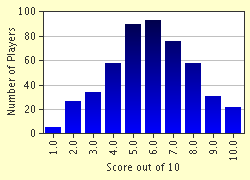Quiz Answer Key and Fun Facts
1. In which European city was a conference held in 1884-5 that essentially set out the (new) rules of acquisition in Africa?
2. Prior to 1880 just over 25% of the land area of Africa was already occupied by European powers.
3. In 1900 there were only three independent African nations. Two of these were Abyssinia (now Ethiopia) and Morocco. Which was the third?
4. In 1884 the European powers granted a large tract of land in central Africa directly to a European monarch rather than to a nation-state. Which monarch?
5. Which nation attempted a conquest of Abyssinia but was badly defeated by the Abyssinians at the Battle of Adowa in 1896?
6. The Fashoda Incident in 1898 almost led to war betweeen which two powers?
7. Spain was a minor colonial power in Africa. What name did Spanish Guinea take on independence in 1968?
8. Under the terms of the Treaty of Versailles which ended the First World War, Germany was stripped of it colonies. Which country did not gain control of any of these colonies?
9. Who was the colonial power in Madagascar?
10. What was NOT a major motivating factor for the European powers in their Scramble for Africa?
Source: Author
alan03
This quiz was reviewed by FunTrivia editor
bloomsby before going online.
Any errors found in FunTrivia content are routinely corrected through our feedback system.

